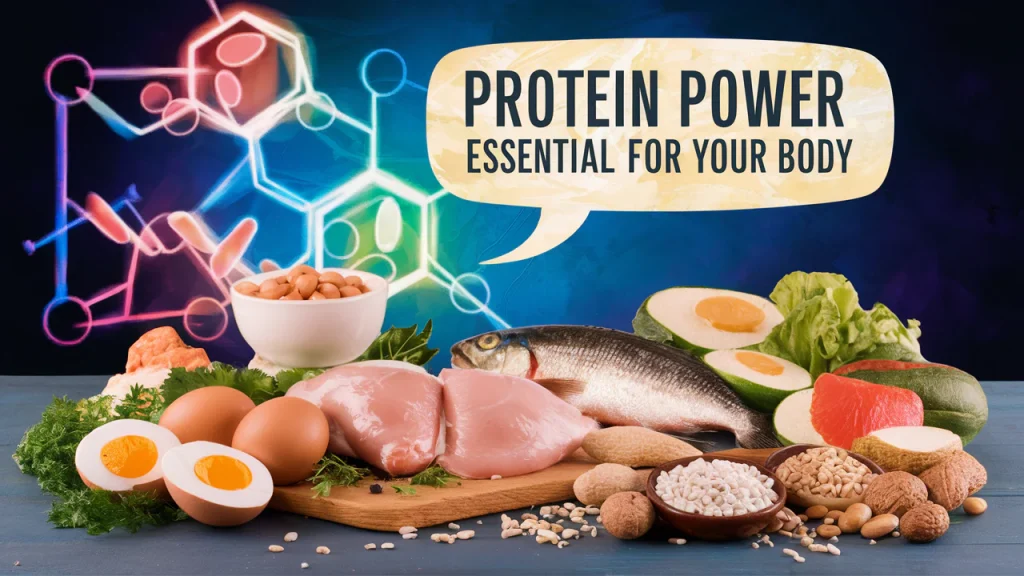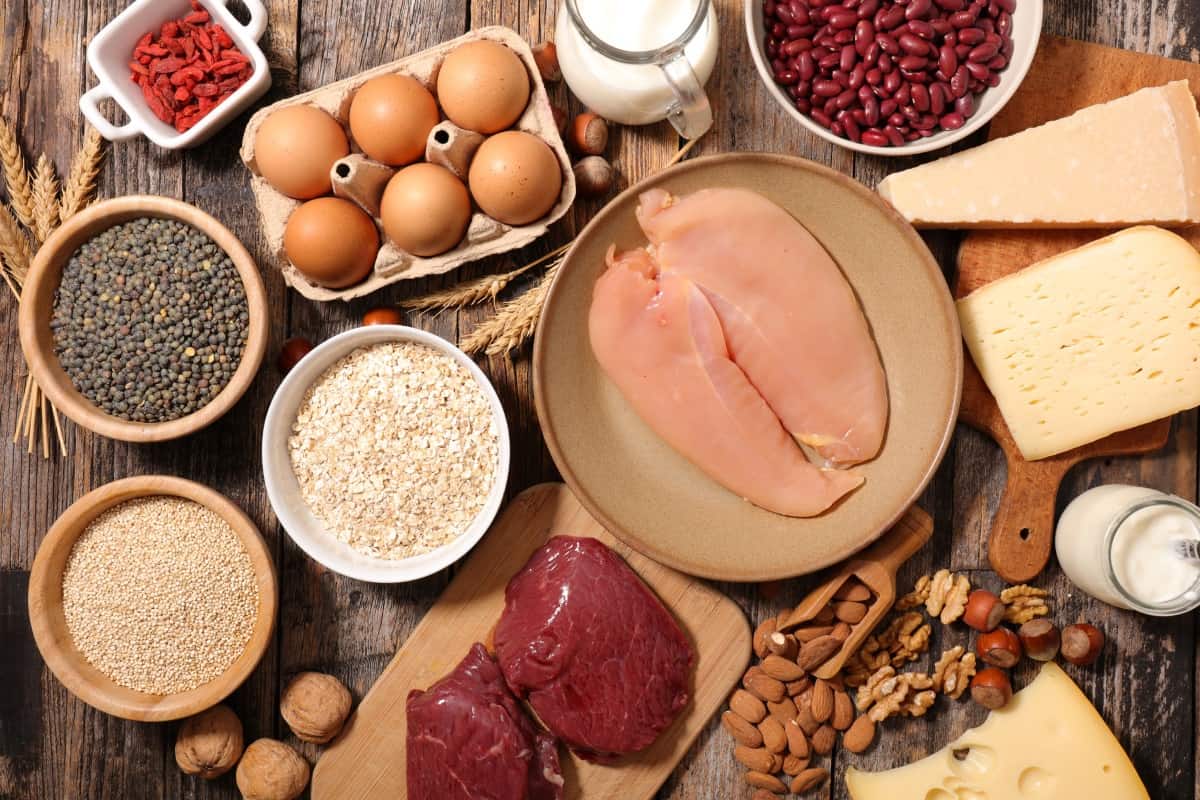Proteins are sometimes called the building blocks of life that might quite aptly come to be quite apt in fact. They have a share in almost all the operations that your body does-from immune functions to the repairing of muscles. This is the reason why there is involvement of proteins in such an enormous number of physiological activities in which your body needs to keep fit and strong. We have a great article that will guide you to understand how much you require, why you require, source, and also what you can do in such a way that with the diet you ensure only this intake of proteins.
What are proteins?
Proteins: These are large molecules of amino acids. There are 20 different amino acids. The structure determines all the functions which the protein will perform later on. In each function of each cell, these molecules are located inside and so become an important part of life.
Protein Classification
There are two major classes of proteins. Compleat Proteins These include all nine of the essential amino acids that the human body can’t manufacture. They come from meat, fish, dairy, eggs, and many sources in plant foods; quinoa and soy.
They are deprived of some of the amino acids that should be provided. These are mainly taken from plant source; they can also be obtained from beans, lentils, nuts, and even in the form of combination of cereal most of the protein from plant source is supplemented along with all the nine essential amino acids
Protein functions
1. Muscle Regeneration and Building
It also plays a very vital role in the healing and growth of the muscle tissue. With every visit to the gym, more so working out on strength training, tiny tears in your muscle fibers happen. More so BCAA assists fix those tiny tears and, hence eventually leads to more muscular growth and strength.
2. Enzyme Production
After all, enzymes are the protein catalysts of the world. They catalyze most chemical reactions in the body. They play an infinitely critical role in digestion, metabolism, and many biochemical pathways. Most physiological processes would take too long to be practicable if not for enzymes.
3. Hormonal Control
It also greatly contributes to the synthesis of hormones since the hormones in the body function similarly to chemical messengers, thus enables numerous processes, including the control of blood sugar levels through insulin hormone proteins. Growth hormone protein enables growth as well as proliferation of cells.
4. Immune Function
These proteins in the body make the immune system quite strong and potent. These proteins allow identifying and nullifying of harmful invaders such as bacteria and viruses. Moreover, the proteins are also responsible for the production of cells, which help to combat the infections.
5. Structural Support
They provide form to the cells and tissues. The connective tissues, especially skin and bones, give elasticity and strength because of collagen. Keratin forms a hardened fibrous structure to hairs and nails and is outermost covering of human body i.e., epidermis.
6. Transportation and Storage
They facilitate the transport as well as the storage of different molecules. For instance, some proteins carry the hemoglobin found in red blood cells that is so popular as oxygen carriers from the lungs to the body tissues as well. Ferritin is the protein molecule that has been found to be acting through the function of iron storage through which in the liver is broken down based on a demand.
Most of the animal products are rich in quality proteins. These contain adequate amounts of all the essential amino acids. Some of the richest protein sources, which are of animal origin, have been mentioned below:

- Meat: All kinds of meat such as beef, chicken, pork, and lamb is complete in nature.
- Fish and Sea Food: Salmons, tunas, shrimps, and other sea food products are rich in proteins containing necessary fatty acids in the form of omega-3.
- Dairy: Milk, cheese, yogurt, etc-that is a good source of protein and calcium
- Eggs: This is an excellent source of protein since it contains all amino acids, easy to digest, and hence provides all the protein for an average person.
Plant-based
All above option given that are available to vegetarians and for vegan too as can easily used since these can easily provide adequate quantity for meeting the nutritional necessity of them as presented here:
Legumes, Beans lentil chick peas, peas, etc; contain good in proteins and fibbers.
Nuts and seeds, almonds, Walnuts, and chia seeds. Or for flax seed, they contain contents as proteins, Fatty acids, etc., and many more.
So, soy food is essential to get to those. To those vegans or vegetarians it would be better if complete protein foods, that sources like- tofu, edamame, tempeh
How Much Protein Do I Need?
Protein consumption is different between ages, sex, and the nature of the activities. Normally speaking, one is well equipped to perform at this most of the time: adults-0.8 grams of protein per kilogram of body weight or 0.36 grams of protein per pound. So a man weighing 70 kilograms, about 154 pounds should thus have around 56 grams of protein a day.
Athletes and Active Adults: 1.2 to 2.0 grams of protein per kilogram of body weight, the intensity and type of workout decided by it
Women pregnant and lactating. As they require proteins to make the fetus in her abdomen, milk flow would initiate after delivery.
Consequence of Protein Malabsorption
Protein deficiency causes extreme health problems. Some of them have been explained under the following sub-heads:
- Muscle Weakness and Fatigue: It brings out weak and feeble muscles, which is not probable to get hardened or to become strong at another age.
- Edema: The result of proteins at very low levels within one’s body leads to carrying out more fluids responsible for swellings commonly on legs and feet.
- Hair, Skin, and Nail Disorders: Brittle nails causes alongside the fall of hairs along with some skin rashes due to protein assimilation.
- Immune Dysfunction: For example, one of the possible links with infections that would flare may develop and the wound fails to heal within the scope of time that is expected because proteins are not there.
Conclusion
Proteins have always had the fundamental function of living healthy. They perform very many functions; tissue building, tissue repair, auxiliary in immune functions, and hormonal regulation. Hence, a proper amount of quality proteins must be supplied from different sources for healthy life. It is telling one way or the other that, in respect to availing sources either from animals or plants, intake of protein-rich food stuffs in diversified manners offers scopes for enjoying a healthy life. Understand that proteins are far greater than just building up muscles; it means life itself.
